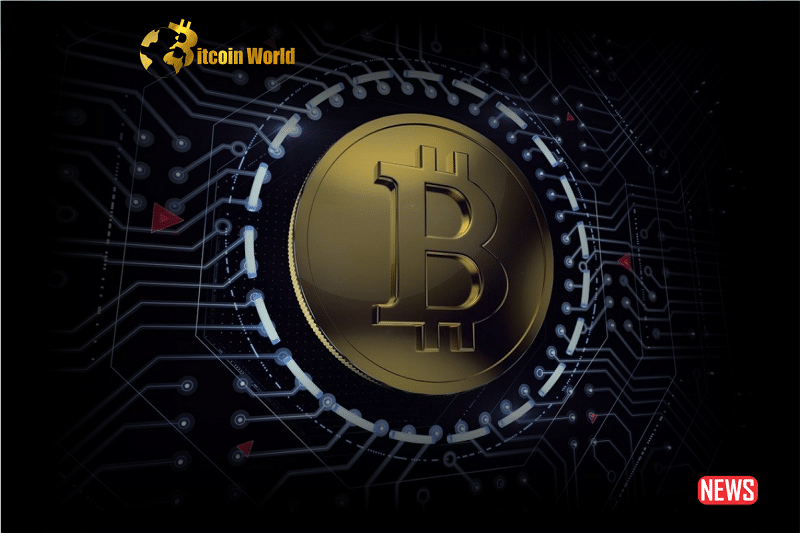Ever wondered who really owns Bitcoin? For years, the narrative has been dominated by the ‘whales’ – those early adopters and large holders. But the tide is turning! Exciting new research reveals a significant shift in Bitcoin ownership, pointing towards a more decentralized landscape. Think of it like this: the Bitcoin pie is being sliced into more, smaller pieces, and that’s a big deal.
The Changing Face of Bitcoin Ownership: What’s Happening?
The data paints a clear picture: Bitcoin is becoming less concentrated in the hands of a few. Less than 20% of all circulating Bitcoin is now held by investors with more than 10 BTC. That’s a dramatic change! What’s driving this? Simply put, more people are getting involved. The rising adoption of cryptocurrencies is bringing a wave of new investors into the Bitcoin ecosystem.
Let’s break down where these Bitcoins are going:
- The 1-10 BTC Club: A significant 11% of all Bitcoin is held by those with between 1 and 10 Bitcoins. These are your everyday investors making a meaningful commitment.
- The Fraction-of-a-Coin Crew (0.1 – 1 BTC): Don’t underestimate the power of smaller holdings! A solid 5.4% of Bitcoin is distributed among those holding between 0.1 and 1 BTC.
- The Micro-Holders (< 0.1 BTC): Even the smallest amounts add up. Surprisingly, around 1.5% of the total Bitcoin supply is held by individuals with less than 0.1 BTC. This highlights the increasing accessibility of Bitcoin.

Why is Decentralized Ownership a Good Thing for Bitcoin?
This shift towards decentralization isn’t just an interesting statistic; it has some powerful implications. Think of it like a company – the more diverse its shareholders, the more stable and resilient it tends to be. The same principle applies to Bitcoin.
Benefits of Broader Bitcoin Ownership:
- Increased Stability: With a wider distribution, the market becomes less susceptible to the actions of a few large holders. If a whale sells off a large chunk, the impact is lessened when ownership is spread out.
- Greater Resilience: A decentralized network is inherently more robust. It’s not reliant on a single point of failure. This applies to ownership as well.
- Democratization of Finance: This trend aligns with the core principles of blockchain technology – empowering individuals and breaking down traditional financial barriers.
- Potential for Social Justice: In a world grappling with economic inequality, a more equitable distribution of digital assets like Bitcoin could contribute to a fairer financial landscape.
What Does This Mean for New Investors?
If you’re new to the world of cryptocurrency, this trend is encouraging. It signifies that you’re joining a growing community of diverse holders. You’re not necessarily late to the party! The playing field is becoming more level as Bitcoin spreads its wings.
Actionable Insights for New Investors:
- Start Small, Learn Big: You don’t need to buy a whole Bitcoin to participate. Fractional ownership allows you to invest what you’re comfortable with.
- Do Your Research: Understand the fundamentals of Bitcoin and the broader cryptocurrency market before investing.
- Consider Long-Term Potential: Bitcoin is still a relatively young asset. Many investors view it as a long-term store of value.
- Stay Informed: Keep up-to-date with the latest news and trends in the cryptocurrency space.
Challenges and Considerations
While the decentralization of Bitcoin ownership is a positive development, it’s important to acknowledge potential challenges:
- Market Volatility: Despite increased stability, the cryptocurrency market can still be volatile. New investors should be prepared for price fluctuations.
- Regulatory Uncertainty: The regulatory landscape for cryptocurrencies is still evolving, which can create uncertainty.
- Security Risks: It’s crucial to understand how to securely store your Bitcoin to protect against theft or loss.
The Future of Bitcoin: A More Distributed Landscape
The shift in Bitcoin ownership is more than just a statistical anomaly; it represents a fundamental evolution in the cryptocurrency’s journey. It signifies a move towards the original vision of a decentralized, peer-to-peer digital currency. As more individuals embrace Bitcoin, the network becomes stronger, more resilient, and more aligned with the principles of blockchain technology.
Conclusion: A More Equitable Bitcoin Future
The research is clear: Bitcoin is becoming increasingly decentralized. The rise of the retail investor and the dispersion of holdings away from large entities marks a significant milestone. This isn’t just about numbers; it’s about the democratization of finance and the potential for a more stable and inclusive digital economy. The future of Bitcoin looks increasingly distributed, promising a more robust and equitable ecosystem for all participants. This trend underscores the enduring power of blockchain technology to reshape our financial world, one satoshi at a time.
Disclaimer: The information provided is not trading advice, Bitcoinworld.co.in holds no liability for any investments made based on the information provided on this page. We strongly recommend independent research and/or consultation with a qualified professional before making any investment decisions.




